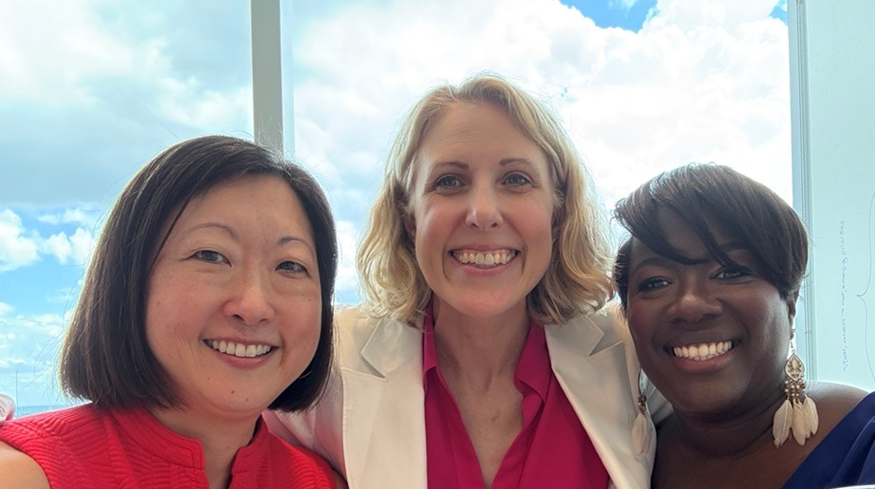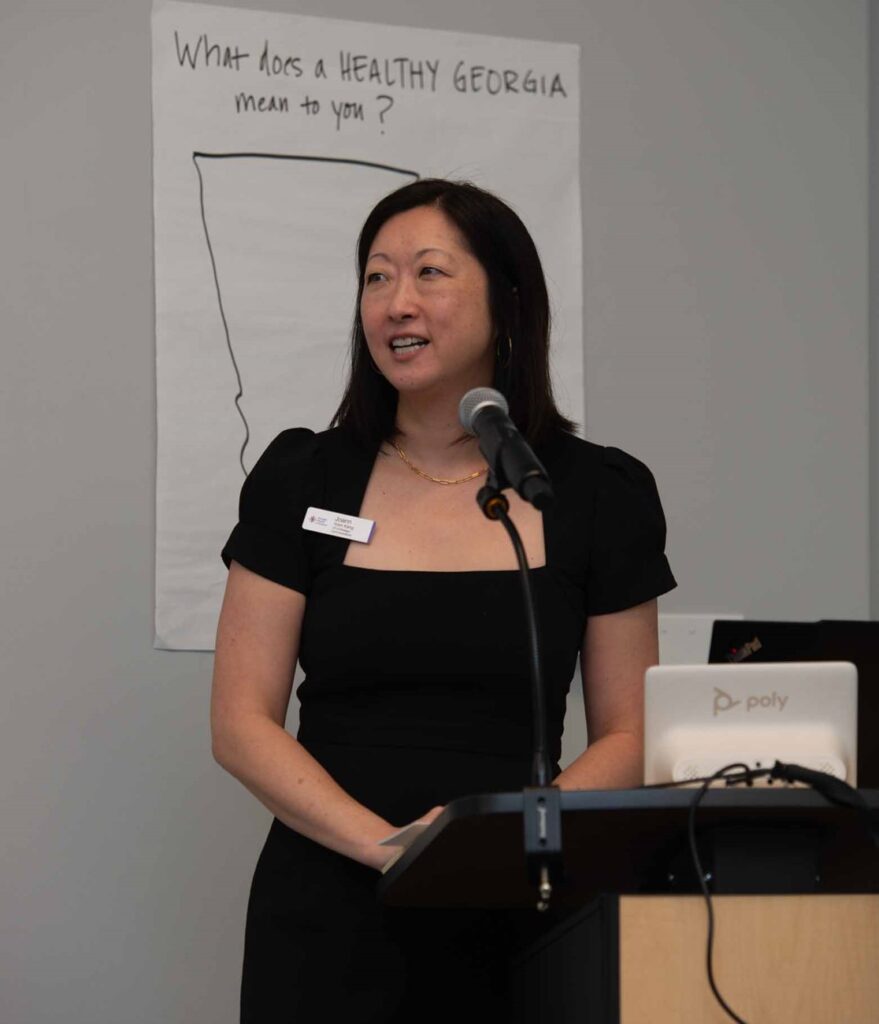Supporting Stories About Health and Those Who Tell Them


By Joann Yoon Kang, Vice President of Strategic Communications
There are few things more compelling than the stories we tell and the stories we hear. Stories connect us to each other and help us make sense of the world around us. They foster understanding and empathy for people we may not know and, in turn, help to strengthen community.
In health journalism, storytelling has a clear purpose. Health journalism—sharing stories about health, health policy and the people affected—helps us understand how decisions made in Washington, D.C., and under Georgia’s Gold Dome affect us and our neighbors in a more personal way. For instance, in reporting the story of Tanisha Corporal, a social worker in Atlanta trying to get and keep health coverage, the complexities of navigating Medicaid work requirements are brought to life in a deeper way.
At first glance, it may not be apparent how health journalism supports Georgia Health Initiative’s vision of a Georgia where all people have the opportunity to attain their fullest potential for health. But if you follow the path tracing our belief in helping people take informed action, in listening to our partners, and our commitment to rural and urban communities, you can see why supporting health journalism is a natural fit. Health journalism alone is not the answer to making people’s lives better. But its importance lies in how it shows us which health policies are working well for individuals and families and which are not, educates us on the issues, and allows for shared understanding when entering into conversations with others.
The health policy landscape in Georgia is changing rapidly and having informed voices to help us understand and navigate that change is essential. Recently passed federal policies will affect our state programs and budget, with varied timing for when different policies kick in and when people will start feeling the impact. This complexity can lead to confusion. Even those of us familiar with health policy struggle to understand exactly what it all means for us and our families.
That’s where local journalism comes in. The Initiative supports KFF Health News’ Southern Bureau, a newsroom that has both health and regional expertise to cover health issues here in the South. Having journalists who know and understand our state reporting about things affecting Georgians provides a local context that’s critical to help us keep up with all that’s changing, especially at a time when we are seeing the shuttering of more and more local news outlets across our state and country. Pair this with recent federal funding cuts to public media and we face an increased risk of countless personal stories going untold.
At the Initiative, we believe that having news outlets to sustain health-related storytelling contributes to the health of people in Georgia. Our support of GPB and WABE, in addition to KFF Health News, is one way for us to live out this belief.
Last week, the Initiative had the privilege of serving as the local host for the Association of Health Care Journalists’ 2025 Rural Health Journalism Workshop in Atlanta. In Georgia, 120 of our 159 counties are considered rural, underscoring the importance of rural health journalism for us here at home. I left the Workshop feeling inspired after connecting with several journalists and seeing the care they take and the responsibility they feel in reporting health stories from all regions. In addition to telling stories, journalists at the workshop also took time to listen and learn from experts from Georgia and from rural areas across the country who shared what they and their communities are currently experiencing regarding their health and wellbeing.
As leaders make decisions that affect our health, we all need to hear how these decisions translate to realities faced by our friends and neighbors and ourselves. And for us to make sure these stories are told and heard, we need to support the storytellers themselves.

